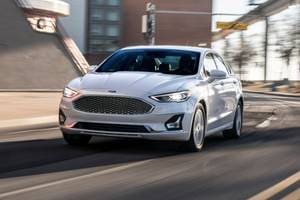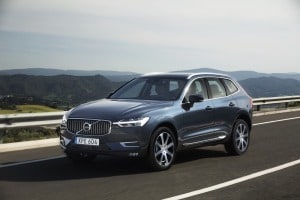European Economy Overshadows Cars at Geneva Auto Show
More than the cars at the show, the deteriorating European economy dominated the conversation during this week's press days at the Geneva auto show. What's happening in Europe now is strikingly similar to what happened in North America before the recession.
Europe's economy is tanking, which is shining a bright spotlight on the continent's long history of vehicle manufacturing capacity that far exceeds customer demand. Overcapacity, the worsening economy and even more softening of customer demand for cars is prompting automakers to force feed sales to consumers by piling on incentives. That is leading to unsustainable financial losses by the mass-market producers including General Motors' Opel, Fiat and PSA Peugeot Citroen. The "dysfunctional" behavior, as Fiat/Chrysler CEO Sergio Marchionne described it in Geneva this week, resulted in as much as "$8,000 being attached to the hoods" of Chrysler vehicles in 2007 — and is now being repeated in Europe.

Marchionne, who also holds the rotating presidency of the European automobile manufacturers association, sounded the alarm again and loudly that Europe's auto industry must restructure. At his press briefing, Marchionne called on the European Union to oversee the rationalization of the region's auto industry — a rationalization that would "distribute the pain and suffering" across all the members. Marchionne estimates 20 percent of Western Europe's car-making capacity — or about 3 million vehicles a year — needs to be shut down; other execs put the number even higher, up to 11 million vehicles a year. In recent years, GM and Fiat are the only automakers to close factories — GM's plant in Belgium and Fiat's plant in Italy. Intense opposition by unions and governments that are home to factories make plant closings nearly impossible in Europe.
Meantime, the overcapacity and desperate financial situation of some car makers are driving partnerships like the alliance recently announced between GM and France's Peugeot. GM will take a 7-percent stake in money-losing Peugeot. The pair expects to cut $2 billion in costs by leveraging their parts purchasing power and co-developing shared vehicle architectures and components in the next few years. In Geneva, the two companies revealed little more about the alliance that is being received with intense skepticism by other auto executives and analysts because it doesn't address the bigger problem of overcapacity.
Acknowledging the criticism, GM Vice Chairman Steve Girsky, the architect of the alliance, said at a media dinner in Geneva that the deal with Peugeot is just "one tool in our tool box" to fix Opel, which has lost money for the past dozen years. GM Europe President Karl-Friedrich Stracke said Opel needs another "two to three months" before providing details on how it will handle capacity. "We need to engage every stakeholder," he said.

Meantime, the Geneva show was like a dance floor for companies seeking partners. Marchionne made clear Fiat is shopping for partners. A proposed Fiat-Opel merger was blocked in pre-bankruptcy 2009 largely due to opposition from the governments and unions. Fiat had also been rumored to be talking with Peugeot, and GM's move blocked a Fiat-Peugeot alliance, though Marchionne insisted he would not want to trade places with GM. Yet, asked by a reporter if Fiat had talked with Sweden's Volvo, now owned by China's Geely, Marchionne said no — "but give them my phone number…We're talking to anyone."
Marchionne said alliances are a matter of "cash preservation" as global automakers face the costly requirements to boost fuel economy, lower emissions, develop vehicles for global markets and generally leverage economies of scale.
Indeed, the GM-Peugeot alliance likely is but the first of more to come, said Renault/Nissan CEO Carlos Ghosn, who has led one of most successful and long-lasting mergers. In addition to the merger of the French and Japanese companies in 1991, Renault-Nissan has alliances with Daimler in Europe as well as partners in Russia and India.
What's not clear is who will blink first on Europe's overcapacity issue. Ghosn says it won't be Renault-Nissan. "It'll be led by the company that needs it the most," he added. And it's not clear if, as Marchionne suggests, the European Union sees the urgency enough to take over the painful process of brokering plant closings.
Ironically, as Europe struggles, the restructured U.S. auto industry is leading the nation's overall economic recovery. Factory capacity now is in line with demand. Incentives are at their lowest levels in four years, boosting average transaction prices of vehicles, allowing automakers to post healthy profits. What happened in North America demonstrates the possibilities for Western Europe.





